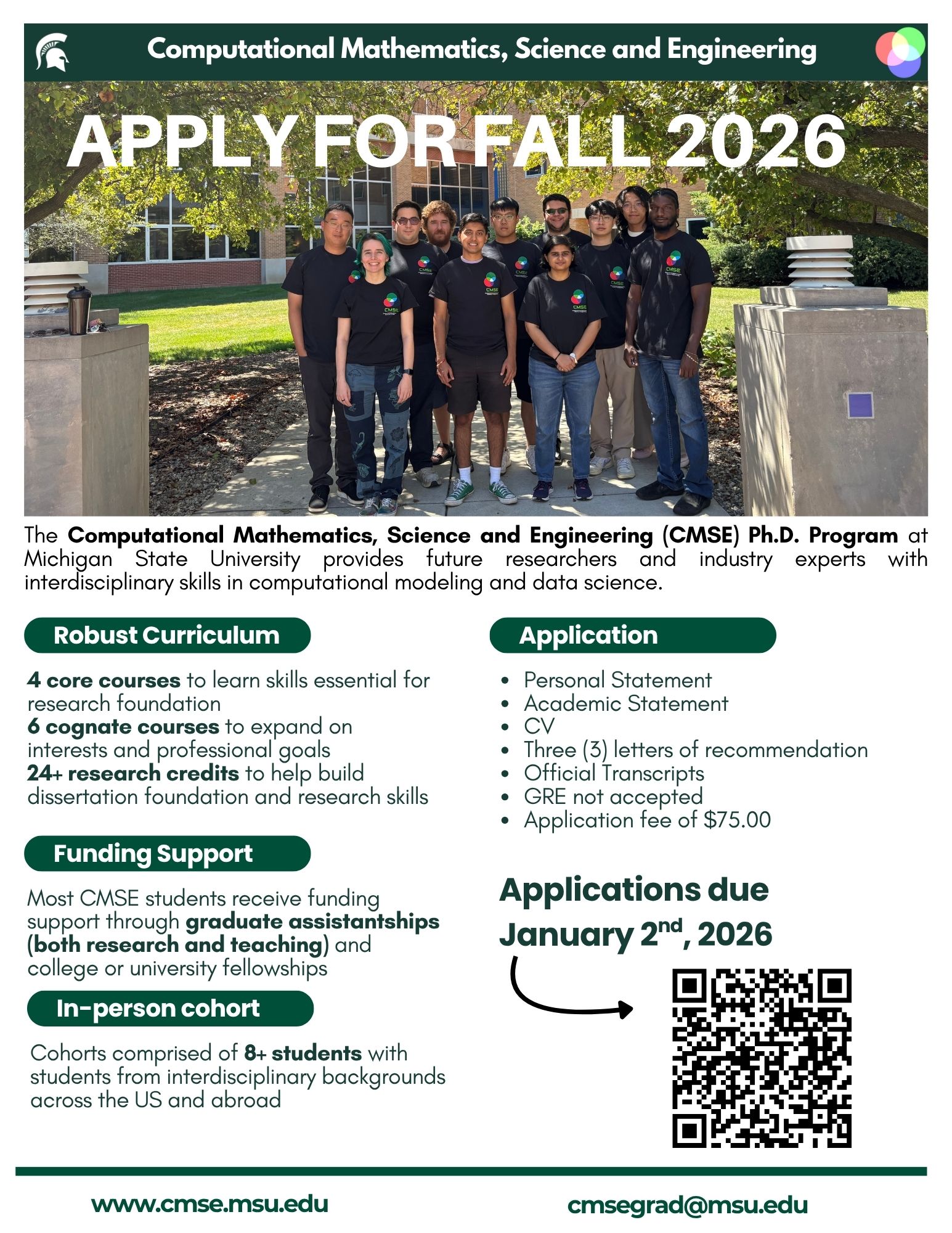Dissertation Defense of CMSE Jiaxin Yang
Department of Computational Mathematics, Science & Engineering
Michigan State University
Dissertation Defense Notice
Wednesday, May 22nd at 10:00am ETS
Engineering Building Room 3540 (in-person only)
Computational interrogation of cell-type specific impacts for non-coding genetic variants based on 3D genome organization
By Jiaxin Yang
Abstract:
Genetic variations play a crucial role in the development of severe human diseases, but deciphering their genetic basis remains challenging due to the complex multi-scale genome structure and intricate molecular mechanisms. Genome-wide Association Studies (GWAS) have identified genotype-phenotype associations, but face limitations such as low statistical power and lack of causality. With advancements in Next Generation Sequencing techniques, researchers have gained insights into the vast non-coding genome, discovering millions of functional DNA elements that regulate cell type-specific gene expression, including promoters and enhancers. These cis-regulatory elements form gene regulatory networks (GRNs) that provide pathways for understanding the effects of genetic variants on diseases. However, leveraging GRNs in non-coding genetic variant analysis poses challenges, such as the vast number of potential enhancer-gene links, the influence of multilevel variabilities on chromatin interactions and 3D structures, and the need for comprehensive data integration methods. This thesis aims to address these challenges by developing machine learning, deep learning, and optimization-based models to discover novel disease-associated genes, enhance eQTL fine-mapping predictions, and investigate the multi-level variabilities of multi-scale 3D chromatin organization. By leveraging regulatory networks of long-range chromatin interactions, incorporating 3D chromatin organizations, and modeling the 3D structures, this work contributes to deep understanding on cell type-specific non-coding genetic variations and advancing precision medicine and clinical care.
Committee Members:
Jianrong Wang (chair)
Jianliang Qian
Yuehua Cui
Rongrong Wang



